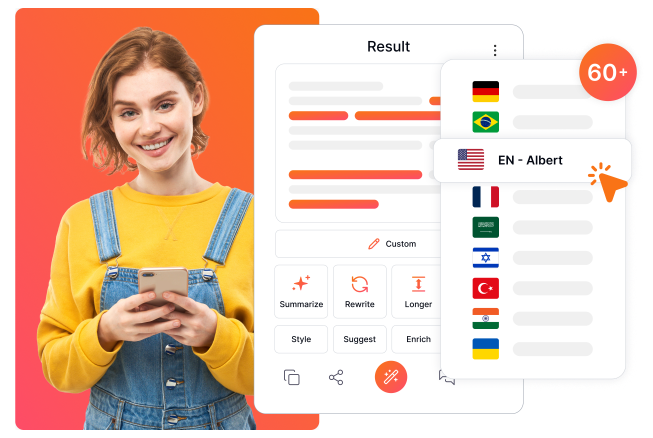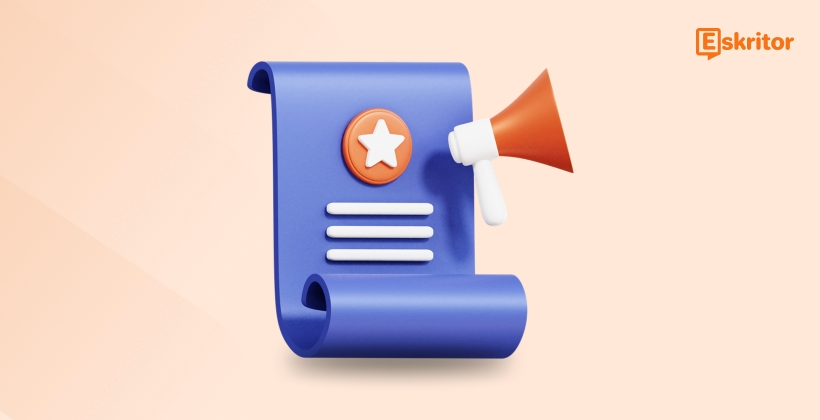The Future of AI Writing Technology Explained
The Future of AI Writing Technology Explained
Blog Article
How AI Writers Are Transforming Content Creation
Synthetic intelligence (AI) publishing technology has developed fast within the last decade, reshaping the way we create and connect to prepared content. From grammar correction tools to AI-generated novels, the number of choices seem limitless. But wherever just is this engineering heading? Let's examine the improvements, difficulties, and potential potential of AI writer.

How AI Writing Technology Operates Today
At their primary, AI writing technology utilizes Normal Language Running (NLP) and unit learning. These technologies enable types to know, make, and improve human language. Tools available nowadays excel at tasks like:
1. Material Creation
AI has achieved a point where it may generate complete website threads, social media captions, and even information articles. Some designs can handle mimicking human writing styles therefore effortlessly that distinguishing between AI- and human-written material is now increasingly difficult.
2. Syntax and Model Suggestion
AI-powered publishing assistants don't only always check for grammar and punctuation problems; in addition they offer suggestions to enhance tone, understanding, and syntax, making complicated publishing accessible to an extensive audience.
3. Feeling Evaluation
AI may examine the emotional tone of a bit, enabling companies to determine how their communications may resonate with readers. This is particularly helpful in marketing and customer interaction.
The Recent Tendencies in AI Writing Technology
Many trends are surrounding another stage of AI-powered writing instruments:
• Personalization
AI publishing technology is increasingly effective at tailoring content to personal preferences. Types can adapt to a user's writing fashion, ensuring the production thinks authentic.
• Multilingual Features
Several AI tools are growing their world wide achieve by providing increased translation functions and support for numerous languages.
• Enhanced Study Characteristics
AI resources now possess the ability to analyze substantial amounts of information and present fact-checked, well-researched writing in seconds, simplifying the procedure for professionals in industries like legislation, money, and journalism.
What the Potential Holds for AI Publishing Technology
1. Improved Imagination
While current AI is successful at generating material, their creativity is still restricted to patterns within its education data. Future AI is not only expected to aid but to generate original, informative performs that challenge individual imagination.
2. Smooth Collaboration
Envision an AI that performs along with you in real-time, finishing your sentences, performing live edits, and even brainstorming ideas. AI writing instruments may possibly soon become co-authors, permitting imagination to movement uninterrupted.
3. Honest and Available Style
With growing problem about plagiarism, misinformation, and error, developers are working toward more translucent AI education operations and moral implementation. Future methods will more than likely offer more detailed details and steps to make certain accountability.
Challenges and Considerations
The development of AI writing engineering isn't without hurdles, including:
• Ethical Issues

Who possesses content produced by AI? How can we ensure AI-generated content is not scattering misinformation? These debates stay unresolved.
• Human-AI Stability
Will AI complement individual creativity or totally change certain functions? Several writers and musicians be worried about their relevance within an AI-driven world.
• Availability Divide
Not absolutely all agencies or regions have similar usage of cutting-edge AI tools, raising questions in regards to the influence of the technology on international inequality.
Changing the Way We Create
AI publishing technology is still in its infancy compared to its potential. Whether you are a student developing documents, a content marketer targeting specific readers, or a novelist seeking inspiration, AI methods will continue to revolutionize the writing process. The following decade promises breakthroughs that combination individual ingenuity with machine intelligence, developing a future wherever writing is more efficient, available, and impactful than ever before.
Report this page